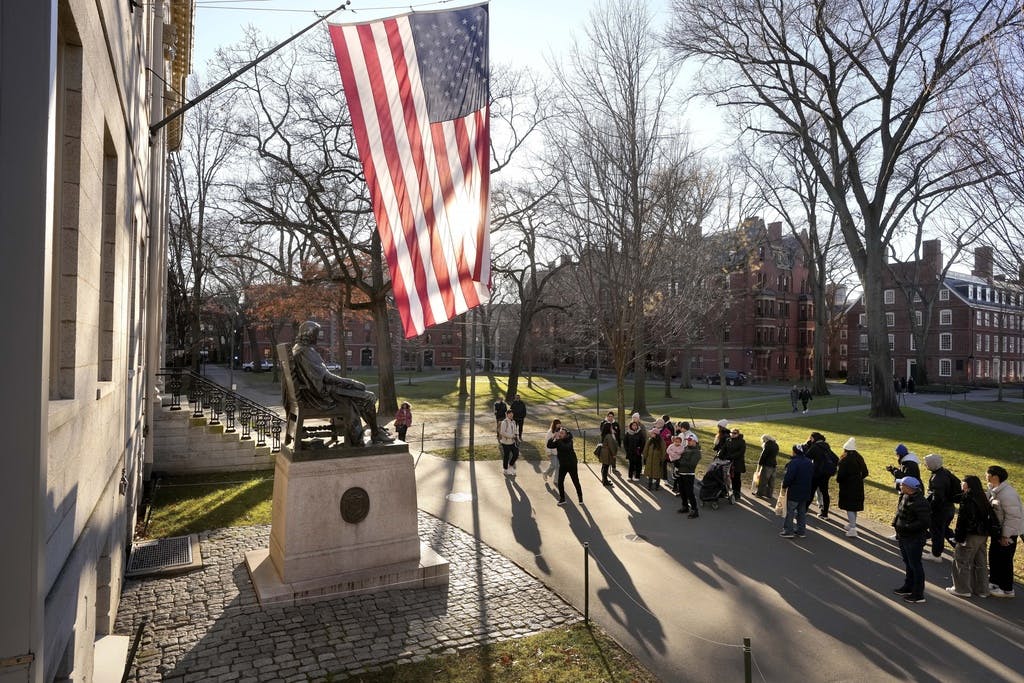Harvard Bonds: Due Diligence Questions for the Nation’s Foremost University as It Prepares To Borrow $1.65 Billion
Are its bonds going to look like junk? It depends on the context.

The disclosure that Harvard is “considering” selling $1.65 billion in bonds with the help of Goldman Sachs, Barclays, and the Massachusetts Development Finance Agency ought to come with a warning of “caveat emptor.”
Anyone considering lending money to that university should consider it a high-risk investment, and demand interest rates to match. The disclosure document says, “The University expects to make senior management available for telephonic 1x1s and/or group investor calls with investors on Monday, March 4, 2024.”
Here are some questions that any loan sharks thinking of lending Harvard money might ask the “senior management.” In answering, Harvard’s senior management might keep in mind that under the federal criminal code, Title 18, Section 1344, anyone who attempts to defraud a banking institution can face 30 years in prison. Simply making a “false statement or report” or willfully overvaluing any land, property, or security in dealing with a bank can also bring 30 years in prison, according to Title 18, Section 1014.
President Trump, under a New York State law, faces more than $450 million in fines and interest as a civil penalty for supposedly overstating his company’s assets while borrowing. Imagine if Harvard’s senior management is held to the Trump standard in this lending round.
In other words, Harvard’s bond offering is a great opportunity for some prospective buyers to exert some pressure on the university, with real requirements for truthful answers. Here are some possible questions.
Your 2022 bond offering described Harvard as one of the nation’s “most prestigious institutions of higher education.” What has happened to Harvard’s prestige since then and why? Keep in mind that ten Harvard graduates recently sued the university in federal court, noting that, “The value of a Harvard degree has been significantly diminished, rendering it functionally damaged in the professional and academic spheres. Plaintiffs are in a situation they never imagined: they are ashamed to say they went to Harvard.”
That same 2022 bond offering listed 13 “principal administrative officers of the University.” Five of the 13 have since left. Does Harvard expect a similar rate of senior administrator churn in the next two years?
The 2022 offering lists the number of freshman applications received, along with selectivity and yield. How much are applications down in this academic year? Why does the university think applications to Harvard are down while applications to competing institutions are up?
The 2022 offering claims that while the university “is subject to various suits, audits, investigations and other legal proceedings…no such proceedings are pending or threatened that, in management’s opinion, would be likely to have a material adverse effect on the University’s ability to meet its commitments related to the Bonds.” Is that still accurate? On what basis do you reach that opinion?
Nearly two dozen Massachusetts legislators, mostly liberal Democrats, are backing a bill to impose a 2.5 percent annual tax on the Harvard endowment. President Trump says that if re-elected he’d increase the endowment tax he instituted in his first term, and Senator Cotton, a Harvard graduate, has introduced a 6 percent endowment tax to help fund aid to Israel and security for the southern border. With bipartisan consensus emerging for higher endowment taxes, how will that affect Harvard’s ability to pay back this borrowed money?
Harvard’s discrimination against Asian applicants and Jewish students has been the subject of federal investigations and litigation that could threaten the university’s stream of federal funding. How might that affect Harvard’s ability to pay back this borrowed money?
How much is alumni giving down since October 7, 2023, compared to previous years?
Is the reason Harvard refused to cooperate with a congressional investigation and instead had to be subpoenaed that it was afraid embarrassing document disclosures would make it tougher to borrow the $1.65 billion it apparently needs?
Does the university leadership place any priority on restoring a flourishing Jewish community to Harvard? If so, why has it named to co-chair an antisemitism task force a professor, Derek Penslar, who has twice stated that concerns about antisemitism are “exaggerated” and who signed a letter accusing Israel of “apartheid” and of a plan to “ethnically cleanse all territories under Israeli rule of their Palestinian population”?
Why do the university’s central administration-funded publications such as Harvard magazine and the Harvard Gazette persist in propagating or minimizing antisemitism? What actionable plan do you have to make them stop?
The New York Times reported February 26, 2024, “Some Jewish students say they have given up their kipas, or skullcaps, for baseball hats. They say they now keep their Zionist beliefs to themselves in classrooms and residence halls.” What are you doing to fix this and how fast do you expect results?
Is Harvard pursuing funding from Communist China or Qatar to try to replace money from the U.S. government or from disillusioned alumni donors?
How many Jewish tenured faculty have left the Harvard government department over the past three years? Have you asked them why?
How overvalued are the private equity investments listed as part of Harvard’s endowment?
Harvard’s September 2023 financial report said expenses rose at a rate “double the increase in revenue,” which it said, “is not sustainable.” Why would a university in a “not sustainable” financial condition borrow $1.65 billion at a moment when interest rates are at relatively recent highs?
The interim president now running Harvard, Dr. Alan Garber, has been the number two person since he was elevated to the provost’s job in 2011. Does he feel at all responsible for running Harvard into the ground?
Dr. Garber also serves as a board member of at least two public companies, Vertex and Exelixis. Does managing Harvard through this crisis demand Dr. Garber’s full and undivided attention?

